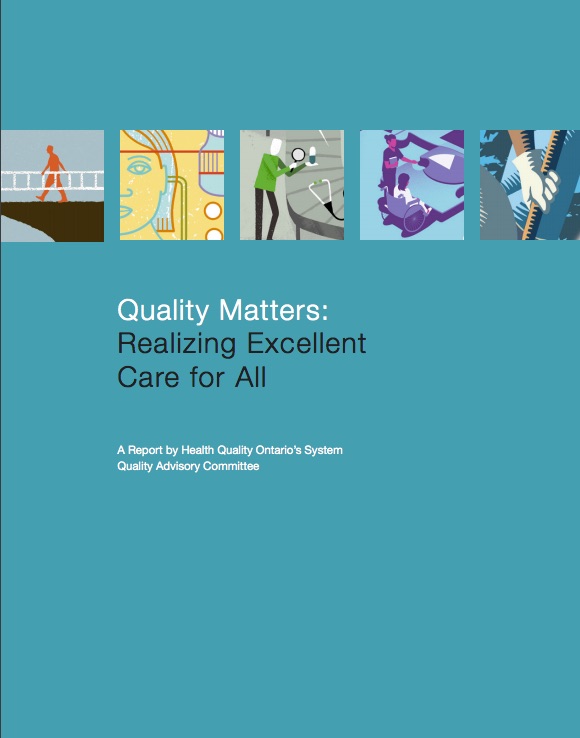 Today, Health Quality Ontario released a report on health system quality that deserves wide circulation. I worked with HQO to help develop and write this report, and the experience had a big impact on me, both as a patient and a student of organizations.
Today, Health Quality Ontario released a report on health system quality that deserves wide circulation. I worked with HQO to help develop and write this report, and the experience had a big impact on me, both as a patient and a student of organizations.
Healthcare is the most complicated environment in which to make system change. That’s because the last mile of change has to pass through many well-rooted professional and administrative cultures that don’t necessarily mesh well with others. The kind of change that’s required in this sector requires continuous learning, not only within groups and teams but across institutions. That’s where culture comes in, and why I believe that trust is the force of nature that holds a quality-first health system — any system for that matter — together.
Here’s what we write in the report about trust:
As the earth shifts beneath the health system, trust – interpersonal and institutional – takes on new meaning. It used to mean simply that doctors were trusted to know the best treatment plan to follow, without questioning about alternatives; that health care institutions were trusted to carry on their business with limited public accountability; and that health care professionals were trusted even though they worked with little collaboration.
Today, the health system operates on very different principles. Patients expect a greater hand in their own treatment plans and in shaping the system; they need to trust that they are being given the right information to make informed decisions. Institutions are adapting to a new world of accountability; they want communities to trust that resources are being used wisely and employees to trust that smart strategic decisions are being made that will lead to quality outcomes. Health care professionals are now expected to work more collaboratively across professions; trust is essential for decision-making to be shared. And system funders need taxpayers to trust that public funds are being used efficiently and wisely.
Trust is a fragile commodity. It is hard to gain and easy to lose, particularly in an age of media reports on system flaws and shortcomings. Perversely, measures to promote transparency and trust – such as releasing ever more system performance data – can also increase the distrust that clinicians and patients feel towards the system itself when they feel the data do not accurately reflect reality.
It can feel like a struggle to trust the system and to protect the trust that others have in you. But for anyone committed to supporting a culture of quality, it is a struggle worth confronting, because without trust, organizational and system learning is severely degraded. In an environment of distrust, providers and managers are loath to admit failure, and without admitting failure, there is limited opportunity for continual improvement.
“We hide our failures in service delivery innovation, even from ourselves,” says Merrick Zwarenstein, director of the Centre for Studies in Family Medicine at Western University, who has written about what is known as high-reliability culture. He has called for a process of “systematically identified failure” in which planned innovations are identified, including goals, criteria for success, and methods of evaluation.
What kind of culture does the health system need so that groups can collaborate with one another with confidence and candour, and learn from clinical missteps and innovations that fall short?
It starts with trust. And trust starts with the willingness to share relevant information, open communication, meaningful culture metrics, and respect for diverse views. From there, building a strong leadership cadre, increasing the capacity to continually improve, enhancing professional cultures, and engaging patients will get Ontario to a health system where quality truly matters.
DOWNLOAD Quality Matters: Realizing Excellent Care for All